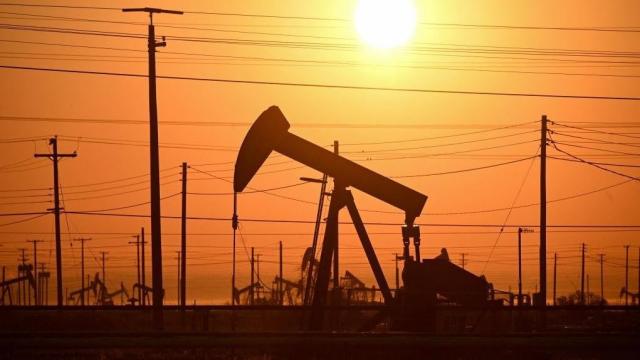A new report from climate research organisation Oil Change International has found that almost half of the fossil fuels that could come out of existing coal mines and oil and gas fields need to stay untouched, if we’re going to stop warming at less than 2 degrees Celsius above pre-industrial levels.
Oil Change International researchers added estimates of already developed oil, gas, and coal projects and how much carbon they would emit and calculated that 40% of those fossil fuels need to stay in the ground to avoid blowing past our carbon budget. This work helps expand on the International Energy Agency’s report, which found that no new oil and gas fields or coal mines can be developed if the world plants on staying within 1.5 degrees C warming.
“That’s where we get the conclusion that we’ve already developed too much,” Kelly Trout, co-author of the study and research co-director of Oil Change, told Earther. “If policymakers wanted to aim for a higher certainty of staying below that limit, there would actually need to be more fossil fuels that would need to stay in the ground.”
But, that’s easier said than done. Last week, the Guardian reported that the oil and gas industry is gearing up to invest in a massive number of fossil fuel projects. Large companies like Shell, Chevron, and BP are set to spend over $US100 ($139) million a day for the rest of this decade on these projects. They’re betting the future of climate mitigation for short-term profits, despite the fact that the planet is already on track to meet 1.5 degrees of warming in the next four years.
Thankfully, there have been some baby steps in the right direction. Last week, the U.S. Department of the Interior announced that it would cancel three offshore oil and gas drilling lease sales — one in Alaska and two in the Gulf of Mexico. That’s millions of acres of coastal waters that will no longer be exploited for fossil fuel projects that are only going to spew carbon and methane into our atmosphere. And during COP26 last year, Costa Rica and Denmark announced they would lead a coalition of countries that aimed to stop extracting fossil fuels.
When asked about carbon sequestration as a solution, Trout pointed out that some carbon sink technology has been found to work in small areas but hasn’t been scaled yet. Our natural greenhouse gas sinks, like rainforests, are also starting to emit carbon instead of sucking it out of the atmosphere, which makes them less reliable as a resource for stopping us from getting to 1.5 degrees of warming.
“There are solutions to this… this is not a technical problem, it’s a political problem,” Trout said. “People can push their elected representatives to take action and tackle the fossil fuel industries.”
